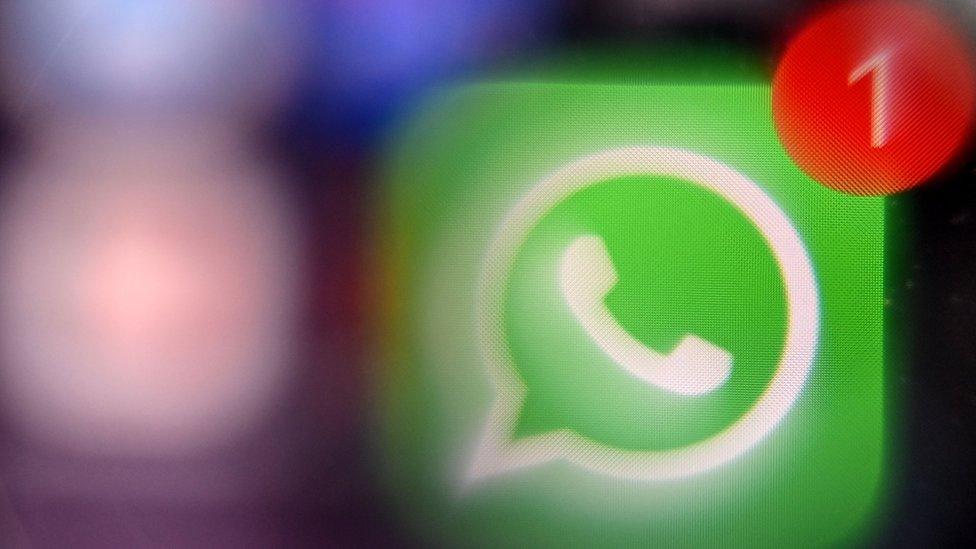WhatsApp image sender becomes first convicted cyber-flasher
- Published

The woman took screenshots of the image on WhatsApp and reported Hawkes to Essex Police the same day
A registered sex offender has become the first person in England and Wales to be convicted of cyber-flashing.
Nicholas Hawkes, 39, of Basildon, Essex, sent unsolicited photos of his erect penis to a 15-year-old girl and a woman on Friday.
The woman took screenshots of the image on WhatsApp and reported Hawkes to Essex Police the same day.
Hawkes admitted two charges when he appeared before magistrates in Southend earlier.
'A grotesque crime'
He is the first person to be convicted of the new offence of cyber-flashing, which was brought in under the Online Safety Act and came into effect on 31 January.
After pleading guilty to two counts of sending a photograph or film of genitals to cause alarm, distress, or humiliation, he was remanded in custody until 11 March, when he will be sentenced at Basildon Crown Court.
Sefer Mani, of the Crown Prosecution Service (CPS) in the East of England, said: "Cyber-flashing is a grotesque crime and the fact we were able to deliver swift justice for the two victims shows the new law is working.
"Everyone should feel safe wherever they are and not be subjected to receiving unwanted sexual images.
"I urge anyone who feels they have been a victim of cyber-flashing to report it to the police and know that they will be taken seriously and have their identities protected."
Hawkes is a registered sex offender until November 2033 after he was convicted and given a community order for sexual activity with a child under 16 and exposure last year, at Basildon Crown Court, the CPS said.
He will also be sentenced for breaching the order when he is sentenced in March.

Follow East of England news on Facebook, external, Instagram, external and X, external. Got a story? Email eastofenglandnews@bbc.co.uk, external or WhatsApp 0800 169 1830